Gate to Go Thap National Special Relic Site. Photo: PTH
Go Thap is the center of Dong Thap Muoi. When the country was invaded by French colonialists at the end of the 19th century, Go Thap was the headquarters of the uprising of two national heroes, Thien Ho Vo Duy Duong and Doc Binh Nguyen Tan Kieu. After 1945, Go Thap was the place where the important revolutionary agency was located in the resistance war against the French. This place was chosen by the Southern Resistance Committee and Administrative Committee as the resistance base from 1946 to 1949. During the resistance war against the US to save the country, Go Thap was also the place that marked the heroic feat of the army and people of Kien Phong province: the collapse of the ten-story Tower (Vien Vang Dai) of the Ngo Dinh Diem government on January 4, 1960.
In addition to the political and military positions, Go Thap is also an archaeological site of the Oc Eo culture thousands of years ago, and is also a spiritual and ecological cultural and tourist destination that attracts many visitors from all over the world to visit Ba Chua Xu Temple, Hoang Co Temple, Linh Thap Pagoda, Thien Ho Duong Temple and Doc Binh Kieu. Go Thap relic was ranked as a National Monument by the Ministry of Culture and Information in 1998 and recognized as a special National Monument by the Prime Minister in 2012.
Go Thap consists of many small mounds located on a sandy land in the Dong Thap Muoi area. Go Thap represents the landscape of the Southwest region with a space including a dense system of canals and a thriving forest ecosystem, preserving many cultural sediments.
Since 2005, the leaders of Dong Thap province have zoned off the protected area, established a master plan with a total area of about 300 hectares, later expanded to 320 hectares, including many areas. The central area of Go Thap is where the excavated Oc Eo culture is preserved. The cultural festival and tourism service area has a lotus tower and other cultural works. The eco-tourism area extends from the North and Southwest, recreating and preserving the ecosystem of wetland animals, building resorts and folk games. The cultural and historical tourism area recreates the past and present images of Go Thap. Every year, there are two traditional folk festivals on the full moon of the third lunar month, which is the anniversary of Ba Chua Xu, and on the full moon of the eleventh lunar month, which is the memorial day of the two national heroes Thien Ho Vo Duy Duong and Doc Binh Nguyen Tan Kieu and the insurgents.
*
* *
Go Thap Muoi is the largest and highest mound in the Go Thap area, the starting point for the exploration and excavation of the Oc Eo cultural site. At Go Thap Muoi, since the reign of King Thieu Tri of the Nguyen Dynasty, on the top of the mound there was the Co Tu Tower built by the settlers to worship Buddha and pray for a peaceful life and good crops. However, in 1956, after taking power in the South, Mr. Ngo Dinh Diem moved the pagoda to another place to build the Vien Vong Dai, also known as the 36m high Ten-storey Tower standing tall in the middle of the vast plain, to observe and control all activities of the Dong Thap Muoi base, causing many losses to the revolutionary forces.
Heritage tree.
Faced with that situation, the liberation army sought every way to destroy the Observatory. On the night of January 4, 1960, amidst the enemy's tight siege, the heroic Battalion 502 commando team carefully studied the terrain and secretly broke in, using explosives to collapse the 10-story Observatory tower. Thanks to that, the Dong Thap Muoi war zone was again under the control of the revolution. To this day, the remaining reinforced concrete blocks on Go Thap Muoi are the vestiges of the Observatory.
In addition to the historical vestiges of the Ten-storey Tower and the archaeological site of Oc Eo culture, Go Thap Muoi also has many ancient trees hundreds of years old, including the tram tree honored by the Vietnam Association for Conservation of Nature and Environment as a Vietnam Heritage Tree in 2016.
The tree is about 25m high, the trunk circumference measured at a height of 1.3m above the ground is 6.5m. This is an ancient tree that exists with many heroic stories in Go Thap. This is where the heroic uprising of Thien Ho Duong and Doc Binh Kieu took place in the early years of fighting against the French invasion. An uprising against the Nguyen Dynasty's orders to keep every inch of their ancestors' land against an enemy many times stronger than them. Then when the French army re-invaded, General Tran Van Tra and Nguyen Van Vinh received orders to come here to build a base for Zone 8 and then became the "Resistance Capital" for the whole South in the period of 1946-1949 with the agencies of the Regional Party Committee, the Resistance Administrative Committee, and the Zone 8 Party Committee. In the years 1956-1959, the Ngo Dinh Diem government built the Observatory here, which was destroyed by the 502nd Battalion of the Liberation Army. During the war against America, there were many fierce events and battles in the war zone, but despite the rain of bombs and bullets, the ancient tree still existed, reaching up to the blue sky.
TAN HUNG
Source: https://baocantho.com.vn/ve-di-tich-quoc-gia-dac-biet-go-thap-a186394.html


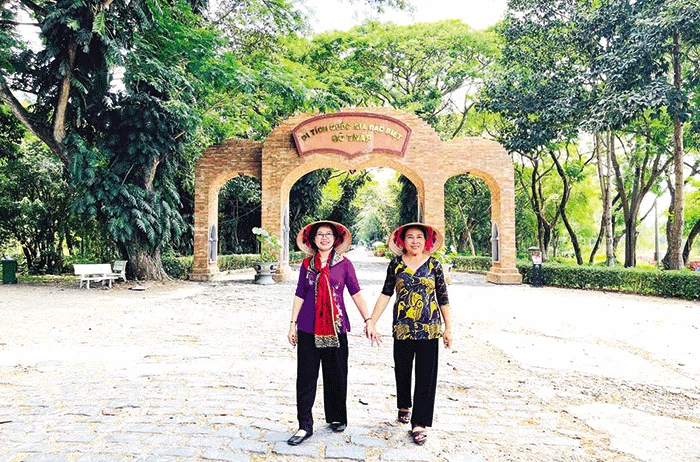
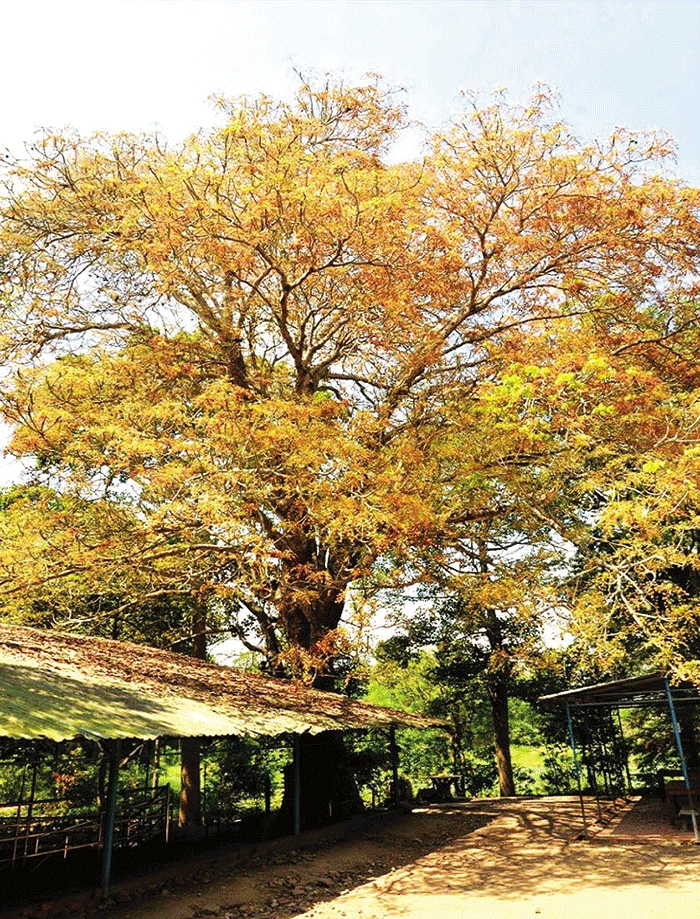



![[Photo] Prime Minister Pham Minh Chinh chairs conference on anti-smuggling, trade fraud, and counterfeit goods](https://vphoto.vietnam.vn/thumb/1200x675/vietnam/resource/IMAGE/2025/5/14/6cd67667e99e4248b7d4f587fd21e37c)


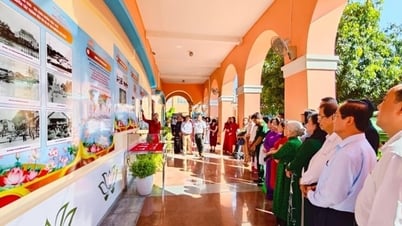










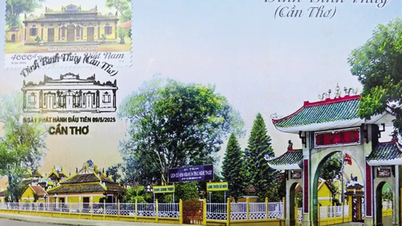

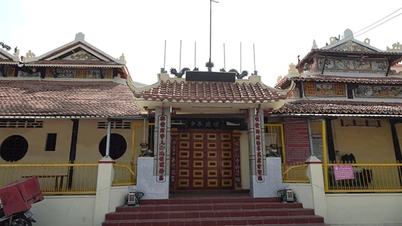




























































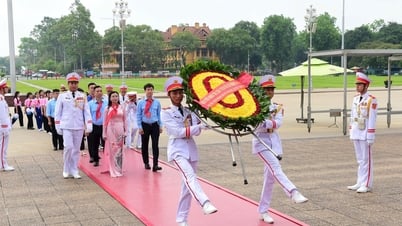











Comment (0)